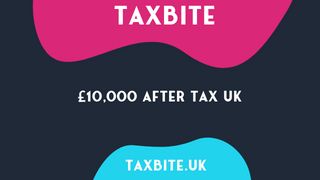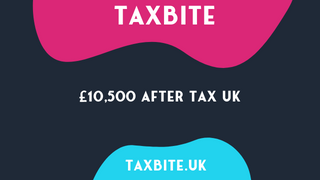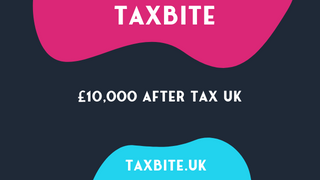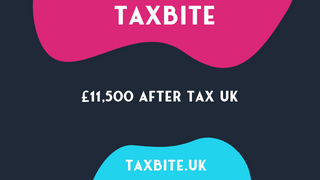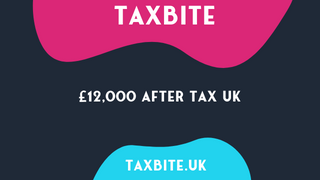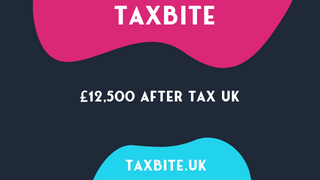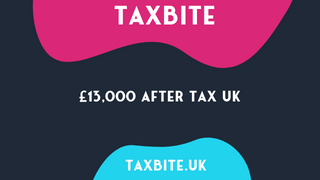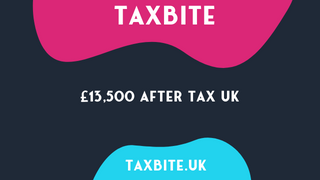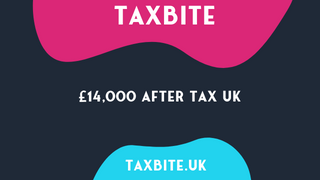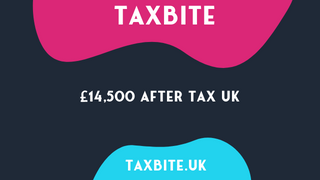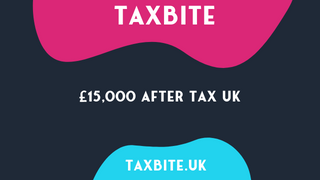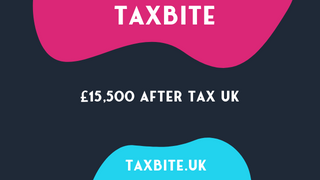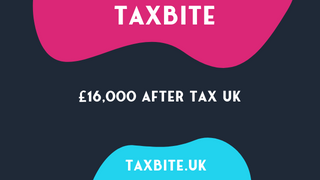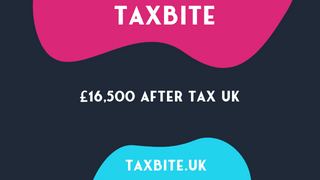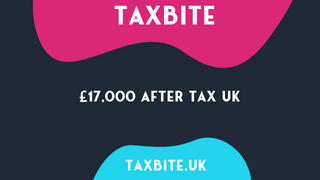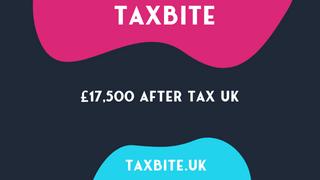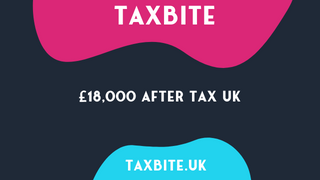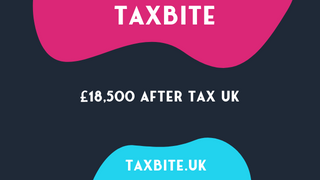Most of us are more focused on our gross salary than the amount we receive after taxes. But understanding your net salary is critical to managing your finances.
In this section, we’ll dive into the nitty-gritty of net salary. From the definition of net salary to why it’s crucial to know your take-home pay, we’ll explore the key things you need to know about working out your net salary in 2021.
After-tax salary – also known as net income – is the amount you get after taxes and deductions have been taken from your gross income. Knowing your after-tax salary is important for budgeting. It helps you plan how to use your resources and understand your take-home pay.
To calculate your after-tax salary, you need to understand marginal tax rates, use tax calculators, and consider other income sources, such as loans and grants. Different employer contracts and tax year periods can also affect your calculations. To get even more accuracy, look at changes in cookie settings.
Your after-tax salary will vary depending on various factors. Bonuses can also have an impact on your tax rates. So it’s a good idea to recalculate your after-tax salary regularly. And share this information with people you trust. For better financial management.
It’s essential to know your after-tax salary, as it decides how much you get to keep. This info is key in planning your finances and expenses without going overboard. Failing to know your after-tax salary may lead you to think you have more money than you really do, resulting in financial pressure in the long run.
To calculate your after-tax salary, there are many factors to consider such as marginal tax rates, pension deductions, childcare vouchers, and taxation conditions based on your income. You must also take into account sources of income like student loans or bonuses, as they affect your take-home pay and tax rate. Knowing these specifics will give you an accurate representation of your earnings for the year.
National insurance contributions also play a role in determining one’s take-home pay. Therefore, one must factor in all details that influence after-tax salary calculations. Comprehending these deductions from the payslip will assist individuals when it comes to making knowledgeable financial decisions. Making frequent alterations to cookie settings and using tax calculators helps to be more precise when calculating net pay.
For long-term investments or emergency funds, you should save enough money for the future. Utilising various tax calculators will help you to calculate your after-tax salary and gain a better understanding of your finances. Knowing your after-tax salary is paramount to avoiding overspending and maintaining financial security.
Calculating your salary after tax can seem daunting, but with tax calculators, it doesn’t have to be. This section explores the ins and outs of using tax calculators to determine your after-tax salary, as well as some important concepts to understand, such as marginal tax rates. By the end of this section, you’ll have a clear understanding of how to calculate your after-tax salary using tax calculators.
Accurately calculating your after-tax salary? Use a tax calculator! Such a calculator takes into account income tax rates, National Insurance contributions, and other incomes to determine net pay. To use one, input salary, pension contributions, and student loans. The calculator then processes the info to provide your take-home pay.
Ensure the correct tax year is used when using the calculator. The tax year runs from April 6th – April 5th. Understanding marginal tax rates is also crucial. These refer to the rate of additional income being taxed. If your earnings are higher, it may affect your overall net pay.
Finally, cookie settings can also affect accuracy. Cookies include benefits like company car allowances, dividends, as well as essential info like age and marital status.
To sum up, calculating your after-tax salary with a tax calculator is a must. Marginal tax rates can be daunting, but understanding them can help keep your salary safe!
Knowing marginal tax rates and their effect on your salary is essential. Marginal tax rates pertain to the tax rate put on any extra income you earn over a specific threshold. This implies that any money beyond a certain point is taxed differently. How much tax you pay is based on your earnings, which can significantly influence your after-tax salary.
Marginal tax rates work by splitting your income into various “tax brackets,” each with its own set of tax rates. Any income you make inside the same bracket is taxed at that bracket’s rate. However, each pound you earn past that bracket’s limit will be taxed at the next highest rate until you reach the highest tax bracket. Consequently, getting to know these brackets and their respective rates can help you accurately work out your take-home pay and craft a precise budget.
It’s also essential to note that different types of earnings invite different marginal tax rates. Income from employment and self-employment may be taxed in a different way. Other factors like student loan repayments or bonuses may affect the amount of taxes owed and make matters even more complex. Therefore, it’s essential to use professional tools to get an exact calculation of after-tax salary, particularly in complex situations like these.
Ultimately, being informed about marginal tax rates can guide you to make educated decisions about your income and finances.
Realizing the effect of Additional and Essential Cookies on your tax computation is critical for determining an exact after-tax salary.
Additional Cookies are non-mandatory cookies which tell us what ads you like to watch on the web. Essential Cookies, on the other hand, are required cookies that help you sign in or save preferences.
These cookies are important for tax computations, as they often keep track of location data, device type, and search history. This data is indispensable for many tax calculators. Also, cookie settings can save details about private pensions and student loan repayment schemes. Ignoring this info can lead to wrong tax computations.
Remember, the use of these cookies has nothing to do with HM Revenue and Customs (HMRC). It is done to improve your browsing experience. But, accepting these cookies during the tax calculation process can result in a more precise calculation of your after-tax salary.
Also, rigid cookie settings on a web browser may disrupt the functioning of HMRC pages. Adjusting the cookie settings can fix this issue and make it easier to access certain features on the page.
As per info from findcourses.co.uk, the use of Additional Cookies and Essential Cookies comes under privacy regulations supervised by GDPR laws. This shows the significance of user and stakeholder understanding of how cookies work in website implementation.
Having the right information is essential, particularly when calculating your salary after tax. Make sure you comprehend how Additional Cookies and Essential Cookies can affect your tax calculation to stay away from surprises on payday.
In this section, you’ll find a detailed breakdown of the after-tax salary for an annual income of £12,000 based on the factual data. You’ll learn about the various factors that impact your take-home pay, including the tax year, pension contributions, and eligibility for government benefits such as tax credits. Additionally, we’ll explore how your contracted salary can affect your after-tax income. So, get ready to gain a deeper understanding of your finances!
The tax year runs from April 6th to the following April 5th. It’s important to understand how it can affect your salary, so you don’t pay too much tax or fail to report taxes correctly. HM Revenue & Customs (HMRC) calculates your tax liability based on money earned during this period.
It’s important to pay any outstanding taxes at the end of the tax year. If you’re employed under PAYE (Pay As You Earn), your take-home pay is calculated by your employer based on your earnings and personal allowance. They also adjust National Insurance contributions according to the latest tax year.
To reduce the chance of overpaying taxes, set up a personal Tax Account with HMRC. This will give regular updates and allow you to check your taxable income yearly. Knowing how your salary can affect take-home pay is essential to make good financial decisions.
Calc’ing your after-tax salary involves understanding how your contracted salary impacts take-home pay. Not just the amount of gross pay and tax rates, but the contracted salary is key. This is because UK tax system uses income bands to work out how much tax is owed. When income increases, the percentage of tax taken goes up too. More contracted salary doesn’t necessarily mean more after-tax salary.
See the table.
| Contracted Salary | After-Tax Salary |
| £12,000 | £10,361 |
| £18,000 | £15,551 |
| £24,000 | £20,741 |
Knowing how contracted salary impacts after-tax salary is fund’l when considering job offers or promotions. Before accepting any offer, find out the specifics of the tax taken out of each paycheck. Don’t miss out on extra take-home pay! Negotiate the best terms possible.
Pension deductions and childcare vouchers also affect take-home pay. Take all factors into account to make informed decisions about money.
Pension contributions and childcare vouchers can really change your take-home pay. Think about these benefits carefully, as they can reduce the amount you get in your paycheck.
Let’s look at a table showing the effect of pension contributions and childcare vouchers on £12,000 a year.
| Gross Pay | Net Pay (with pension contributions) | Net Pay (with pension contributions and childcare vouchers) |
|---|---|---|
| £12,000 | £11,430 | £11,214 |
Remember, if an employer has an auto-enrolment workplace pension scheme, both employees and employers pay into it automatically. This will reduce your take-home pay even more.
If you want to increase your net pay, you could decrease your pension contributions or use salary sacrifice for childcare vouchers. Consider long-term effects on your retirement income and review the advantages before making any changes.
Calculating your after-tax salary can be a tricky task as several factors impact the final number. In this article, we will explore various sources of income that could contribute to your after-tax salary in 2023. We will also investigate how student loans and postgraduate loans could affect your take-home pay. With the help of proven facts and figures, we will demystify the connection between your bonuses and tax rate. Get ready to gain insight into the factors that affect your after-tax salary calculation in 2023.
Calculating your after-tax salary requires taking into account different income sources. Your primary income is likely the most important, but other sources such as rental income, investments, and freelance work can also affect your pay.
These other income sources impacting your after-tax salary include interest from savings accounts, rental of property, and dividends from companies. Plus, income from freelancing, tips, and bonuses from employers outside of typical pay can also impact your after-tax salary.
These incomes influence how much tax you pay and contribute to the total amount that is taxed. Depending on the type of income, it may also come with allowances to reduce the tax due. For example, interest on savings below £1,000 or dividend income below £2,000 won’t be taxed.
Student loans and postgraduate loans can have a big effect on your take-home pay. It’s important to understand how they work.
If you have a student loan, the amount you repay each month is based on your income. It will automatically be taken from your salary. You only have to repay if your income after paying taxes is above the student loan threshold.
Postgraduate loans are similar to student loans, but there are some important distinctions. If you earn over £21,000 after taxes, you’ll start repaying the postgraduate loan. The repayment amount is 6% of the difference between your salary and the £21,000 postgraduate loan threshold.
Having a loan doesn’t always mean you have less money. It depends on income, pension contributions, and National Insurance payments.
University fees are rising. Postgraduate loans provide financial help to keep studying, without having to pay upfront. It’s essential to understand how student and postgraduate loans affect your take-home pay. Knowing the amount you have to repay each month lets you plan your finances and avoid unexpected expenses.
After-tax salary is the amount you get once taxes and other deductions have been taken from your gross income. Knowing about bonuses and how they impact your tax rate is key to effectively managing your finances.
It’s important to bear in mind that different kinds of bonuses may have different effects on your taxes, so understanding them and their effect on your tax rate is essential. Additionally, taking action to prepare for unexpected gains or variable pay, like bonuses, can help you decrease your total tax load and manage your finances better.
Don’t forget about those hidden deductions on your payslip, ready to cut into your take-home pay!
If you thought taxes and National Insurance contributions were the only things impacting your take-home pay, think again! In this section, we’ll explore other deductions that can eat into your salary – some of which may surprise you. We’ll also examine how changes in tax brackets and earning levels can affect your take-home pay, and delve into the intricacies of National Insurance contributions to reveal their impact on your salary. Get ready to discover the hidden factors that can impact your bottom line!
Do you want to know what your take-home salary is? It’s essential to consider the deductions that can affect it. These may not be obvious, but can greatly reduce the monthly money you get. Here’s some info on the deductions that can impact your take-home pay:
It’s important to know about these deductions when negotiating contracts or benefits packages. This knowledge helps you manage finances better. You’ll know how much money is taken out of your paycheck every month, and can budget for expensive items like a car, home renovation or wedding.
Your earnings or tax payments may change every year. You may even not pay any taxes at all. But, how does having 0 taxes or 0 earnings affect your salary? If you earn under £12,570 (2021-22 tax year), and your income is below the Personal Allowance, you won’t owe taxes. But, NICs will still be taken out.
Having 0 taxable income means you won’t pay taxes on your earnings. But, if you have no earnings due to job loss, maternity/paternity leave, or long-term sickness, this can reduce your take-home pay. Statutory payments for sick/parental leave are lower than usual wages.
For self-employed individuals, zero profits for two years or more consecutively within five years, removes their right to claim losses against previous profits after three fixed years.
Though paying no income tax avoids deductions on taxable earnings, it can still harm your salary due to variables outside of your control. Knowing how NICs work can help plan a secure financial future.
It is important to note that NICs will still be taken out even if you earn under the tax-free Personal Allowance threshold. Therefore, having 0 taxes or 0 earnings may affect your salary due to this factor.
National Insurance Contributions (NICs) are essential payments. Both employees and employers must make them, to fund state benefits and services. The calculation of NICs depends on your gross earnings, earnings threshold, and specific circumstances. This can affect your take-home pay and state benefits.
It is important to know the various types of NICs. For instance, Class 1 NICs are mandatory for most employees and freelancers. The rate at which you pay NICs depends on your income level, pension plans, and benefit entitlements. Examples: statutory sick pay and maternity leave.
To reduce the impact of NICs on your salary, explore options. For example, you could claim back part of the National Insurance Contributions as self-employed expenses. Understanding how NICs function is key to managing and increasing your take-home pay.
Customizing your tax calculation for your unique circumstances can help you get extra net pay. Knowing which type of NICs to pay and how much can help you make informed decisions. Being aware of relief options can also minimize the effect on your net salary.
Tailor your tax calculation to your unique situation to optimize your income in 2023. With the help of tax settings and personalized deductions, you can easily customize your tax calculation to fit your specific needs. Say goodbye to one-size-fits-all tax software and hello to a more accurate and efficient way of managing your finances.
Personalizing your tax calculation is easy. Learn how to use settings to customise it to your needs! Here are 6 steps:
Customising taxes may seem complex, but it gives insight into take-home pay. It can be used for investment strategy and family budgeting. So don’t hesitate to customise your tax calculation and understand your earnings!
Don’t be fooled! Altering your cookie settings won’t change your after-tax salary amount. It will only modify the website preferences.
Shares, home equity loans, lottery winnings, or other non-income sources have no effect when altering cookie settings. Income declaration does affect taxable incomes, though. So, if you want to maximize your take-home pay, it’s wise to investigate other financial options such as postgraduate loan plans. These will put you in control of your finances and help you achieve financial freedom.
Want to generate extra net pay using a postgraduate loan plan? There’s a 6-step guide to follow:
Remember to factor in pension deductions and other sources of income when calculating tax rates. Budgeting and planning are key if you want to reduce future debt and gain financial freedom.
Are you tired of only discussing your salary with your employer? This section offers exciting insights into additional salary scenarios. You will discover how to share your after-tax salary calculation with others and explore alternative salary arrangements, with information on their effects on take-home pay. Prepare to broaden your perspective and learn how others navigate and negotiate salaries.
Accurately sharing your after-tax salary calculation is essential. It can show your actual take-home pay to landlords, lenders, and colleagues. An online tax calculator can generate a detailed report. To make sure the info is precise, choose a reliable calculator. Ask permission from your employer or HR before sharing salary info.
Sharing your after-tax salary can lead to financial opportunities. However, inconsistencies between records and your info could cause questions and potential issues. Understanding the calculation process can help your financial well-being and career growth.
Negotiate with your employer to get the best deal possible. Check out other job opportunities in your industry. It could bring not just higher pay, but also more holidays, bonuses and healthcare packages. You can also take part-time jobs or start a side hustle to increase income. But, understand how different tax brackets affect your take-home pay if you go for higher salaries.
Exploring salary options can help get more take-home pay and fit with your career and financial goals. Not all salary options work for everyone. Consider your personal situation, like being a working parent. A study found that a woman taking care of a family member had to think carefully about salary options to cover living costs. So, think through the salary options and how they impact your take-home pay.
Someone earning £12,000 a year in 2023 will not have to pay any taxes or national insurance contributions, leaving them with a take-home pay of £12,000 per year or around £1,000 per month.
The tax calculator from Reed.co.uk calculates income tax (PAYE) and National Insurance (NI) deductions based on the user’s salary. The deductions are calculated per week, per month, and per year. Users can enter their salary to view tax deductions and take-home pay. The Tax Calculator helps users figure out how much money they will have at the end of the month.
Yes, users can change their cookie settings at any time when using the GOV.UK website. Essential cookies are used to make the website work, while additional cookies may be set to understand how users use the website, remember settings, and improve government services. Cookies from other sites may be used to deliver content. If additional cookies are accepted, they will be used. If additional cookies are rejected, they will not be used.
The available types of student loan schemes are Plan One (before September 2012), Plan Two (after September 2012), Plan Four, Postgraduate Loan, Plan 1 + Postgraduate Loan, Plan 2 + Postgraduate Loan, and Plan 4 + Postgraduate Loan.
A marginal tax rate is the amount of tax that is applied to any additional income earned after a certain threshold. For someone earning £12,000 per year in 2023, their marginal tax rate is 0.0%. This means that any additional income earned will not be taxed. However, for each type of tax calculation there are different tax rates and thresholds. For example, for a yearly income of £12,000 no tax is paid on the first £12,570 earned, which is the yearly personal allowance. Also, no National Insurance is paid on the first £12,569 earned, which is the yearly National Insurance threshold. Adjustments can be made for other options available, such as student loan deductions and pension contributions.
Other potential deductions from a payslip include pensions, company car taxes, and student loans. When using a tax calculator or other resource to calculate take-home pay, be sure to consider these deductions if applicable.
Here’s a list of similar salaries:
